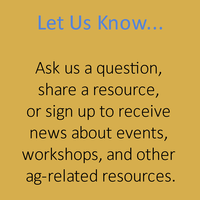West Marin's community compost project
West Marin Compost (WMC) is a community compost project that has been steadily turning out finished compost at the Lafranchi Dairy in Nicasio since February 2012. Ten years in the making, this public/private partnership was initiated through the efforts of the Marin Resource Conservation District (Marin RCD) with a significant portion of this project’s funding from the USDA Natural Resources Conservation Service and Lunny Grading and Paving, Inc.

Jeff Creque, Erika Hughes, Loretta Murphy, Kevin Lunny and Joe Lunny gather for a photograph at the opening of the West Marin Compost Project.
The project engaged the Marin RCD, the West Marin Compost Coalition, Marin Organic, UC Cooperative Extension, Lafranchi Dairy and essential logistical and financial support from the County of Marin through the efforts of Marin District 4 Supervisor Steve Kinsey. The West Marin Compost project addresses West Marin’s need for a local, environmentally sound strategy for managing its organic residuals, while restoring and enhancing the fertility of its rangeland and agricultural soils. At the same time, the project models a solution to the growing climate crisis.
Soils have a uniquely important role to play in mitigating and reversing the accumulation of greenhouse gases in the atmosphere. Through the solar-powered process of photosynthesis, growing plants absorb carbon dioxide from the air, and move that CO2 to the soil as beneficial soil organic matter in a process known as soil carbon sequestration. Soil carbon sequestration, in conjunction with essential emission reductions, offers the safest, fastest, most beneficial and effective means of addressing global warming, while at the same time helping to buffer agricultural and other managed ecosystems against the negative effects of climate change.
Composting organic,“carbon-based” waste materials offers one of the simplest and most efficient means of conserving and sequestering atmospheric carbon captured by plants. The controlled composting environment transforms relatively ephemeral plant carbon into a more stable form (compost), which means less CO2 going back to the atmosphere than if that vegetation was left to decompose on the soil surface. Transferring stabilized carbon and associated nutrients to the soil as compost provides a source of slow release energy and nutrients for the soil ecosystem and growing vegetation, while helping to protect both soil and water quality. Once applied to soil, some compost carbon ends up in long-term soil carbon pools where it can be expected to stay sequestered for decades or centuries, all the while enhancing soil fertility and water holding capacity. This in turn means enhanced plant growth, accelerating the rate at which plants can pull CO2 from the air, driving further reductions in greenhouse gases.
The climate change benefits of producing compost from organic materials that would otherwise end up in landfills are especially significant. This is due to the avoidance of methane emissions associated with anaerobic decomposition of organic materials in those landfills. In addition, a local organic materials recycling facility means significantly fewer haul miles travelled on West Marin roadways, with less fossil fuel used in the counter-productive transport of those valuable soil building materials out of the region. Returning West Marin’s organic matter and nutrients to West Marin’s soils has significant implications for enhanced function of West Marin’s watersheds and sustained productivity of its agricultural lands.
How it works
WMC makes compost from three primary West Marin resources: clean green material, equestrian facility residuals and dairy manure. Green material is collected and ground at the West Marin Compost green material drop off site, located at the Marin Municiple Water District yard across the street from Marin's Department of Public Works yard on Nicasio Valley Road. Equestrian materials are collected via WMC’s roll-off dumpster service. For a modest fee, WMC will drop off an empty dumpster at your facility, and pick it up for recycling of its contents on an as-needed basis.
Once ground, green material is hauled to the compost site on the Lafranchi Dairy where it is blended with equestrian materials and dairy manure, and watered as needed to initiate the high temperature composting process. By maintaining temperatures of 131 F or higher, for 15 days or more, high temperature composting eliminates virtually all pathogens and noxious weeds. The composting process typically continues for 30 to 60 days. The material is then stockpiled and allowed to mature for a month or more before being offered for bulk sale as both screened and unscreened material.
WMC compost is produced in compliance with National Organic Program standards, and is in the process of being certified by the Organic Materials Review Institute (OMRI). In the meantime, anyone using WMC compost on certified organic acreage or crops can request a letter of documentation from WMC. Bagging of finished compost is planned for the near future.
The drop off site is open for business from 12-4pm weekdays and 9-1pm on Saturdays. Drop off charges are $25 per cubic yard. Only clean green materials are accepted. Chipped materials are accepted for a lower per yard fee.
For more information about the project, drop off hours, equestrian services or to purchase compost, West Marin Compost can be reached at 415-662-9849.
By Jeff Creque



